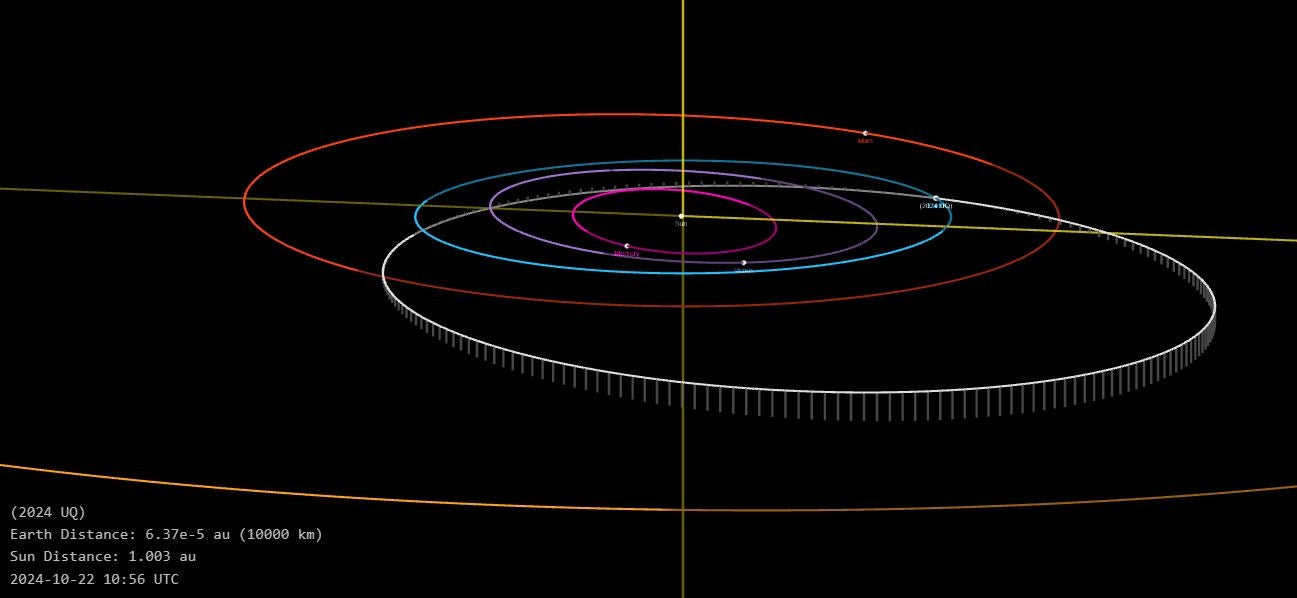Asteroid strikes Earth just hours after it is detected
Tenth asteroid on record to be spotted imminently before impact
An asteroid burned up in the Earth’s atmosphere just hours after it was detected last month, the European Space Agency revealed in its latest newsletter.
The asteroid, called 2024 UQ, was first spotted on 22 October by the Asteroid Terrestrial Impact Last Alert System, or ATLAS, a telescope network scanning the sky for space rocks likely headed for the Earth.
The small asteroid, measuring about a metre across, did not pose a threat to life. It was the third space rock detected imminently before impacting the Earth this year, but only the tenth on record.
“ATLAS survey obtained images that included detections of a small object in a high-probability collision course,” the agency noted in the newsletter.
“However, due to the location of the object near the edge of two adjacent fields, the candidate was recognized as a moving object only a few hours later.
By the time data about the space rock reached monitoring systems for analysis, the space agency added, “the impact had already happened”.

The planet was struck by two other asteroids this year that were similarly detected only a few hours before.
One, dubbed 2024 BX1 and measuring about a metre across, burned up over Berlin in January and the other, labelled 2024 RW1, caused a spectacular fireball over the Philippines in September.
Small rocks like these frequently strike Earth but are rarely noticed before impact. They usually pose little risk to life, but some may prove dangerous.
☄️💥Woah! Newly discovered 1-1.5m asteroid 2024 RW1 (spotted by near-Earth asteroid hunters in the US) burns up above the Philippines just hours after it was first seen.
— Dr Robin George Andrews 🌋☄️ (@SquigglyVolcano) September 4, 2024
This asteroid wasn’t a risk. But if it was, a duck-and-cover warning was possible. pic.twitter.com/Fht4yqRsBP
A speeding rock about 20m across crashed into the Earth’s atmosphere and exploded over the Russian city of Chelyabinsk on 15 February 2013, releasing more energy than 30 atomic bombs.
The explosion of the meteor shook the ground, damaged many buildings and sent flying glass shards that left nearly 1,500 people injured.

Space agencies around the world are developing defence systems to detect and track asteroids that could pose a risk to life on the Earth.
They are also conducting asteroid impact simulations to estimate the damage from different types of collisions and to develop effective methods to respond to a real strike.
Nasa plans to launch a new infrared telescope called the NEO Surveyor to look for potentially hazardous space rocks headed towards the Earth.
Join our commenting forum
Join thought-provoking conversations, follow other Independent readers and see their replies
Comments
Bookmark popover
Removed from bookmarks